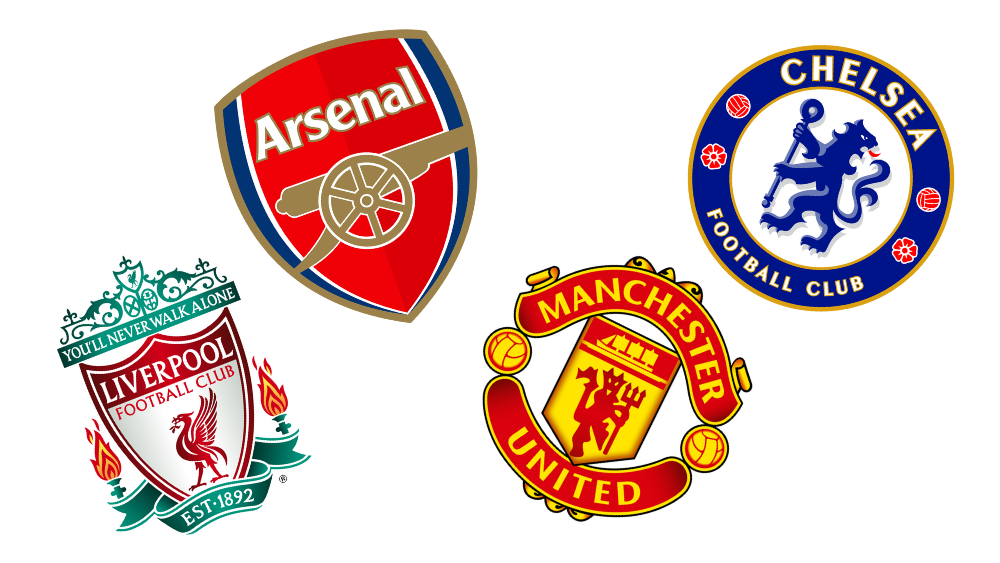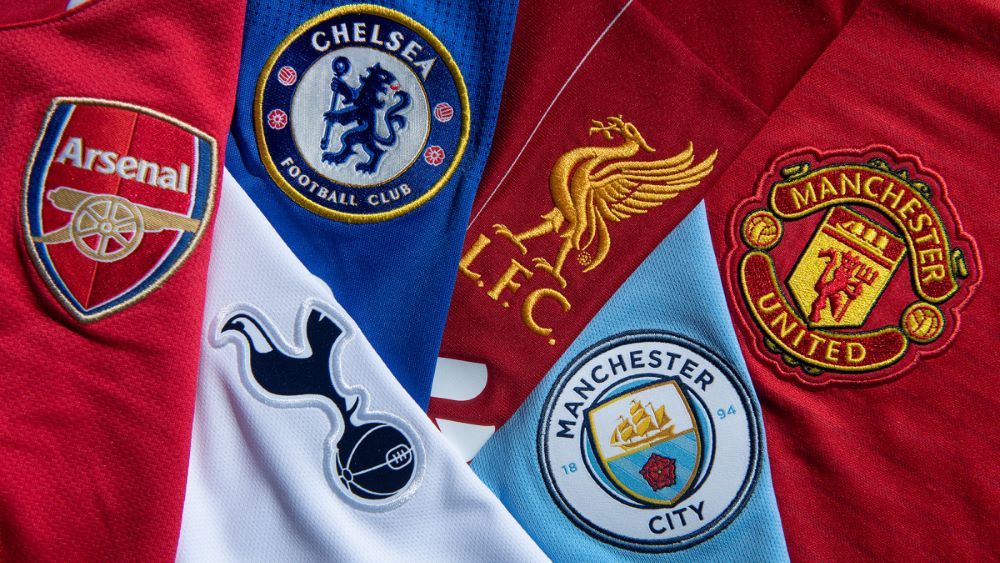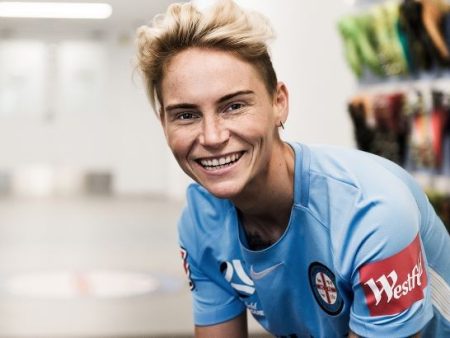The highest tier of the English football league system is known as the Premier League, also known legally as The Football Association Premier League Limited. This league consists of 20 clubs, which engage in promotion and relegation with the English Football League (EFL). The season typically runs from August to May, with each team playing 38 matches, including home and away games against all other teams. Most games take place on Saturday and Sunday afternoons, with some weekday evening fixtures.
In 1992, the FA Premier League was established when clubs in the Football League First Division decided to break away from the Football League, which had been founded in 1888. Nevertheless, teams can still be relegated into and promoted from the EFL Championship.
The Premier League is highly lucrative, largely due to its television rights, with the league’s accumulated television rights deals worth around £3.1 billion a year from 2019 to 2020, thanks to Sky and BT Group securing the domestic rights to broadcast 128 and 32 games, respectively. The Premier League is run as a corporation, with Richard Masters as the chief executive responsible for its management, while the member clubs act as shareholders. In 2016-17, clubs received central payment revenues of £2.4 billion, with a further £343 million in solidarity payments to English Football League (EFL) clubs.
The Premier League is the world’s most-watched sports league, with broadcasts available in 212 territories to 643 million households and a potential TV audience of 4.7 billion people. During the 2018-19 season, the average attendance of a Premier League match was 38,181, the second-highest behind the German Bundesliga’s 43,500, while the overall attendance across all matches was the highest of any football league, reaching 14,508,981. Stadiums are typically near full capacity. As of 2021, the Premier League ranks first in the UEFA coefficients of leagues based on performances in European competitions over the past five seasons. The English top-flight has also produced the second-highest number of UEFA Champions League/European Cup titles, with five English clubs winning fourteen European trophies in total.
Since the establishment of the Premier League in 1992, a total of fifty clubs have competed, with forty-eight English and two Welsh clubs. Seven of these clubs have won the title: Manchester United (13), Manchester City (6), Chelsea (5), Arsenal (3), Blackburn Rovers (1), Leicester City (1), and Liverpool (1).
Origins
English football faced a low point in the late 1980s, despite its significant success in Europe during the 1970s and early 1980s. The stadiums were in a state of deterioration, and fans had to endure inadequate facilities. Additionally, hooliganism was rampant, and the Heysel Stadium disaster in 1985 led to English clubs being banned from European competition for five years. The Football League First Division, which had been the top level of English football since 1888, had lower attendances and revenues compared to leagues like Italy’s Serie A and Spain’s La Liga. Many English players had also moved abroad during this time.
In the 1980s, major English clubs began to transform into business ventures by applying commercial principles to their administration to maximize revenue. Leaders in this transformation included Martin Edwards of Manchester United, Irving Scholar of Tottenham Hotspur, and David Dein of Arsenal. Seeking to increase their power and revenue, the top clubs threatened to break away from the Football League, leading to an increase in their voting power and a more favorable financial arrangement. They secured a 50% share of all television and sponsorship income in 1986, demanding that television companies pay more for their coverage of football matches. Revenue from television grew in importance, with the Football League receiving only £6.3 million for a two-year agreement in 1986. However, by 1988, in a deal agreed with ITV, the price rose to £44 million over four years, with the leading clubs taking 75% of the cash.
According to Scholar, before 1986, each of the First Division clubs received only around £25,000 per year from television rights, which increased to around £50,000 in the 1986 negotiation and then to £600,000 in 1988. The negotiations were conducted under the threat of ten clubs leaving to form a “super league,” but they were eventually persuaded to stay, with the top clubs taking the lion’s share of the deal. The negotiations also convinced the bigger clubs that to receive enough votes, they needed to take the whole of the First Division with them instead of a smaller “super league.” As the cost of stadium upgrades proposed by the Taylor Report needed funding, the big clubs once again considered breaking away by the beginning of the 1990s.
Premier League Foundation
In the year 1991, the top-flight clubs of the football game put forward a proposal for creating a fresh league that could bring in more money to the sport as a whole. The proposal came to fruition as the Founder Members Agreement, which was signed on the 17th of July in the same year. This agreement laid down the fundamental principles for forming the FA Premier League.
The goal of the proposal was to generate a more financially lucrative platform for football clubs to operate on. The establishment of the FA Premier League aimed to enhance the sport’s financial stability and competitiveness while providing an improved experience for fans. The agreement enabled the top-flight clubs to gain greater control over broadcasting rights, sponsorship deals, and other commercial aspects of the game. This provided them with the opportunity to generate more revenue and increase their financial clout.
The 22 inaugural members of the new Premier League were:
- Arsenal
- Aston Villa
- Blackburn Rovers
- Chelsea
- Coventry City
- Crystal Palace
- Everton
- Ipswich Town
- Leeds United
- Liverpool
- Manchester City
- Manchester United
- Middlesbrough
- Norwich City
- Nottingham Forest
- Oldham Athletic
- Queens Park Rangers
- Sheffield United
- Sheffield Wednesday
- Southampton
- Tottenham Hotspur
- Wimbledon
The 104-year-old Football League was broken up, with the Premier League forming a single division and the Football League reduced to three. Despite this, the competition format remained the same, with the same number of teams competing in the top flight and promotion and relegation rules staying the same.
The first season of the Premier League was held in 1992-1993, consisting of 22 clubs, which was later reduced to 20 in the 1995-1996 season. The inaugural Premier League goal was scored by Brian Deane of Sheffield United in a 2-1 win against Manchester United. Three teams, Luton Town, Notts County, and West Ham United, were relegated from the old First Division at the end of the 1991-1992 season and did not participate in the first season of the Premier League.
Manchester United, after a 26-year wait, won the first edition of the newly formed league. This breakthrough spurred United to become the dominant team in the competition, winning seven of the first nine trophies, including two League and FA Cup “doubles” and a European treble. The team initially consisted of experienced players like Bryan Robson, Steve Bruce, Paul Ince, Mark Hughes, and Eric Cantona. Later, a young, dynamic team led by Roy Keane, Bruce, and Cantona, who were also part of the Class of ’92, emerged from the Manchester United Academy.
As the decade came to a close, Arsenal FC emerged as United’s first persistent Premier League rival. They won the League and FA Cup double, forming a duopoly with United for the next five years.
The Rise of the “Top Four” in the Premier League

The early 2000s marked a significant change in the landscape of English football, as Liverpool and Arsenal emerged as serious contenders to challenge the dominant force of Manchester United. In the 2004-2005 season, Chelsea broke the duopoly of the “Top Four” clubs – Arsenal, Chelsea, Liverpool, and Manchester United, which saw them finish at the top of the table for the majority of the decade. This resulted in their consistent qualification for the UEFA Champions League, with only three other clubs managing to qualify during this period: Newcastle United, Everton, and Tottenham Hotspur.
The Champions League spot was only available to the teams occupying the final position except for Newcastle United, who finished third in the 2002-2003 season. The 2003-2004 season was a landmark for Arsenal as they went unbeaten and earned the nickname “The Invincibles.” This record remains unmatched to date.
However, the “Top Four” dominance was met with criticism as it became a predictable trend. Kevin Keegan expressed his concerns in 2008 about the Premier League becoming one of the most boring but great leagues in the world due to the dominance of the “Top Four.” Despite this, Premier League chief executive Richard Scudamore defended the league, stating that there were different tussles at different levels of the league, making it interesting.
From 2005 to 2012, there was always a Premier League representative in seven out of eight Champions League finals. During this time, only the “Top Four” clubs made it to the final stage, with Liverpool, Manchester United, and Chelsea winning the competition. Arsenal, Liverpool, Chelsea, and Manchester United lost the finals. Leeds United was the only non-“Top Four” side to reach the semi-finals of the Champions League in the 2000-2001 season. Three Premier League teams made it to the semi-finals of the Champions League five times, with Serie A doing it once in 2002-2003 and La Liga in 1999-2000.
From 1999-2000 to 2009-2010, four Premier League teams reached the UEFA Cup or Europa League finals, with only Liverpool managing to win the competition in 2001. Arsenal, Middlesbrough, and Fulham lost their finals.
Although the dominance of the “Top Four” was reduced to some extent after this period with the emergence of Manchester City and Tottenham, these four clubs still maintain a considerable lead in all-time Premier League points won. As of the end of the 2021-2022 season, Liverpool was in fourth place in the all-time points table, over 300 points ahead of Tottenham Hotspur. They are also the only teams to maintain a winning average of over 50% throughout their entire Premier League tenures.
The Emergence of the “Big Six” in the Premier League

Following the 2009 season, there was a significant shift in the composition of the Premier League’s elite clubs, as Tottenham Hotspur and Manchester City both broke into the top four positions on a regular basis, thereby transforming the “Top Four” into the “Big Six.” In the 2009-10 season, Tottenham’s fourth-place finish marked the first time since Everton five years prior that a team had broken into the top four. Despite this achievement, criticism of the widening gap between a small group of “super clubs” and the majority of Premier League teams persisted, largely due to the former’s increased ability to outspend the others. Manchester City’s title win in the 2011-12 season was particularly notable, as it made them the first non-“Big Four” team to win since Blackburn Rovers in 1994-95. That same season also saw Chelsea and Liverpool fail to make the top four for the first time since that same year.
With only four spots available for UEFA Champions League qualification in the Premier League, greater competition for these spots now exists, albeit from a narrow base of six clubs. In the five seasons after the 2011-12 campaign, both Manchester United and Liverpool found themselves outside of the top four three times, while Chelsea finished 10th in the 2015-16 season. Arsenal’s fifth-place finish in 2016-17 ended their record run of 20 consecutive top-four finishes. The top four positions were breached by a non-“Big Six” side for the first time since Everton in 2005, with Leicester City winning the league in the 2015-16 season and qualifying for the Champions League as a result.
Off the pitch, the “Big Six” wield significant financial power and influence, with these clubs arguing that they deserve a greater share of revenue due to the global stature of their clubs and the attractive style of football they aim to play. However, opponents argue that the Premier League’s egalitarian revenue structure is essential for maintaining a competitive league and ensuring its future success. The 2016-17 Deloitte Football Money League report revealed the vast financial disparity between the “Big Six” and the rest of the division. All of the “Big Six” had revenues greater than €350 million, with Manchester United having the largest revenue in the league at €676.3 million. Leicester City was the closest club to the “Big Six” in terms of revenue, recording a figure of €271.1 million for that season, which was largely due to its participation in the Champions League. Meanwhile, West Ham, which did not play in any European competition, had revenues of only €213.3 million, less than half of Liverpool’s fifth-place revenue of €424.2 million. The biggest clubs received roughly £150 million to nearly £200 million each in the 2016-17 season from television broadcast deals, which accounted for a significant portion of their revenue. According to Deloitte’s 2019 report, all the “Big Six” were among the world’s top ten richest clubs.
Starting from the 2019-20 season, video assistant referees were introduced to the league, which helped improve the accuracy of referees’ decisions. In October 2020, Project Big Picture was announced, which proposed a plan to reunite the top Premier League clubs with the English Football League. The initiative, which was put forward by leading Premier League clubs Manchester United and Liverpool, was criticized by the Premier League leadership and the UK government’s Department of Culture, Media and Sport.
Premier League Criticism
The Premier League has been under fire for its governance practices, with accusations of a lack of transparency and accountability. This came to a head when the league blocked the proposed takeover of Newcastle United by a consortium backed by the PIF, using the Owners’ and Directors’ test. The Premier League faced criticism from MPs, fans of Newcastle United, and other stakeholders involved in the deal, who claimed that the league had not been transparent or accountable during the process. Amanda Staveley of PCP Capital Partners, a member of the consortium, stated that fans deserved complete transparency from regulators to ensure responsible actions, as the Premier League performed a role similar to that of a government regulator but lacked the same accountability systems.
In July 2021, Tracey Crouch MP, the chair of the UK’s football governance fan-led review, released interim findings that revealed the Premier League had “lost the trust and confidence” of fans. The review recommended the establishment of a new independent regulator to oversee club takeovers and other matters. However, Premier League CEO Richard Masters rejected the proposal, stating in May 2021 that he did not believe an independent regulator was necessary. He defended the Premier League’s role as the regulator of its clubs over the past 30 years.
If the Premier League hopes to restore the trust of its fans and stakeholders, it must take action to address concerns about its governance practices. Transparency and accountability must be at the forefront of decision-making processes, and a willingness to adapt to changing circumstances is crucial. The establishment of an independent regulator may be the first step towards rebuilding trust, as recommended by the fan-led review.
Competition Format
The Premier League season runs from August to May, during which each club plays the others twice in a double round-robin system. This means each team plays 38 games, with three points awarded for a win, one point for a draw, and no points for a loss. Teams are then ranked by total points, followed by goal difference and goals scored. In case of a tie, head-to-head records between the tied teams are taken into account.
Promotion and Relegation
The Premier League has a promotion and relegation system in place with the English Football League Championship. The bottom three teams in the Premier League are relegated to the Championship, while the top two teams from the Championship are promoted to the Premier League. An additional team is promoted after a series of play-offs involving the third to sixth-placed clubs.
The number of teams in the Premier League was reduced from 22 to 20 in 1995, with four teams relegated and only two teams promoted. The league had only been expanded to 22 teams in the previous season before the formation of the Premier League.
The Premier League resisted FIFA’s request in 2006 to reduce the number of teams in the league to 18, and the 2007-08 season kicked off with 20 teams.
Video Assistant Referee (VAR)
VAR was introduced to the Premier League at the beginning of the 2019-20 season to assist the referee in making decisions on the pitch. However, its implementation has been met with mixed reactions from fans and pundits.
VAR officials can only assist the on-field referee in four types of decisions, which are goals, penalty decisions, direct red card incidents, and cases of mistaken identity. VAR officials review the video footage and communicate with the on-field referee via a headset.
The technology has been criticised for impacting the flow of the game and the inconsistency of decision-making. A study evaluating fan reception of VAR in the Premier League found that it has not been well received, with fans expressing frustration and criticism of the technology’s impact on the game’s flow and the inconsistency of decisions. The study recommends improving the technology and increasing transparency in decision-making to address these concerns.
Closing Thoughts
There are several factors that contribute to the widespread appeal of the Premier League. Firstly, it attracts numerous top-tier players from around the globe who compete week in and week out, making for an exciting and highly competitive atmosphere. Additionally, the diverse range of international players adds varying play styles to the league, providing a unique and dynamic experience for fans.
Furthermore, the passionate and energetic crowds in England and Wales further enhance the overall atmosphere, creating a lively and exhilarating environment for players and spectators alike.
Unlike other major football leagues such as those in Germany, Spain, Italy and France, the Premier League is notably unpredictable, making it an exciting and thrilling competition for fans to follow. This unpredictability means that even seasoned pundits and fans can never be sure where a team will end up, adding to the excitement and drama of the league.














